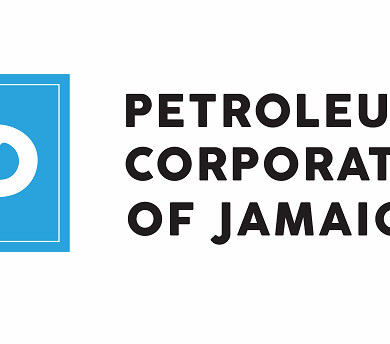

All indicators are the Jamaican economy is registering growth with tax revenues up and inflation beginning to trend down but the Bank of Jamaica’s monetary policy has placed a choke hold on the disbursement of loans to the private sector, surmised the Economic Programme Oversight Committee (EPOC) chaired by JMMB’s CEO Keith Duncan.
More recently, inflation has been trending downward, not straying too far from the BOJ’s target range (four-to-six per cent). In April it came in at 5.8 per cent and in May at 6.1 per cent which means it is hovering around the top of the range.
For the first two months of the fiscal year, tax revenues grew year-over-year by $18.7 billion (up 18.3%) and exceeded year-to-date targets by $10.5 billion.
Public sector pay increases had a significant impact on expenditure which grew by $30.7 billion year-over-year. Public sector compensation was up by a whopping 52.8 per cent, growing by $23.8 billion.
A major positive is that real GDP has surpassed pre-COVID levels growing by 4.2 per cent for the first quarter of this year and by 4.7 per cent for the fiscal year 22/23. The Minister of Finance Dr Nigel Clarke must be particularly heartened by debt-to-GDP coming in at 77.1 per cent when compared with the 94.2 per cent figure registered for fiscal year 21/22.

This means that within three years, the Jamaican economy has bounced right back surpassing 2020 levels.
The Government’s debt target is 60 per cent or less by end of fiscal year 27/28. So far so good and things are looking on track here.
Turning to the fiscal performance, it is commendable. For the year ending 22/23 a fiscal surplus of $7.8 billion was achieved, which was $0.9 billion ahead of target. It was actually $13.5 billion lower than the outturn for 21/22.
The Primary Surplus for 22/23 was $159.2 billion, equivalent to 5.8 per cent of GDP, which was above the programmed surplus of $158.1 billion.
Wages and Salaries continues to be a hot topic, sparking contentious debate, with it coming in at $95.2 billion (42.8 per cent up) ahead of 21/22 actual payment.
Overall, Wages and Salaries of $317. 9 billion (within the supplemental budget) was generally in line with the budget of $318 billion but was $95.2 billion higher than the $222.7 billion for fiscal year 21/22.
What does this mean? Public sector compensation levels grew $95.2 billion in one year. This has never been seen in the history of Jamaica where the public sector has been accorded increases of this level.
Speaking at a press conference earlier this week, EPOC chair Keith Duncan said: “ This public sector wages compensation review has been a very complex one and I think the Ministry of Finance has done a very good job of restructuring the compensation, making it more efficient, reducing the bands and reducing the number of allowances.
“The other issues continue to be contentious but the important thing for me is that we now have an efficient public sector compensation model and kudos to the Minister of Finance, the Ministry of Finance and the Government of Jamaica for this.”
“The other issues continue to be contentious but the important thing for me is that we now have an efficient public sector compensation model and kudos to the Minister of Finance, the Ministry of Finance and the Government of Jamaica for this.”
Keith Duncan, Chairman of EPOC
For the first two months of the fiscal year 23/24, Revenues and Grants came to $129.8 billion, exceeding budget by $12.3 billion (10.5 per cent) due mainly to solid tax revenue growth.
Tax revenues grew by $18.7 billion to $120.6 billion for the period under review, surpassing the budget target of $110 billion.
So, therefore, tax revenues and grants were $22 billion above the same period of last year of $107 billion, so the economy continues to show underlying strength with PAYE up 35.1 per cent. More people are now paying PAYE.
But while inflows were good, outgoing expenditure grew by 26.1 per cent year-over-year as a result of the huge sums paid out in public sector compensation.
The Central Government Expenditure of $148.4 billion for April-May 2023 reflected a shortfall of $3.5 billion relative to budget. This outturn however was $30.7 billion above the $117.6 billion spend recorded for April-May 2022 driven primarily by increased Employees Compensations, which increased by $23.8 billion year-over-year.
The fiscal deficit was better than expected at $18.6 billion, lower than the projected target of $34.4 billion. There was a primary surplus of $6.1 billion against a projected deficit of $10.2. billion. This deficit over performance resulted in a shortfall in expenditure by 2.3 per cent along with revenues and grants outperforming budgets.

“That means Jamaica is ahead of targets while in a deficit position. We are ahead of our key targets under the fiscal responsibilities laws. These are the critical fiscal rules that we follow now that the wages to GDP ratio have been removed as a fiscal rule. In prior years the rule was wages had to be no more than 9 per cent of GDP. What we are seeing over the medium term, is wages to GDP projected to average 11.4 per cent.
“The Financial Administration and Audit Act was amended by Parliament in March 2023 to repeal the wages to GDP fiscal rule of 9 per cent. We must run a balance fiscal budget which means we can’t spend more than we earn and must keep an eye on our primary surplus targets in our debt reduction efforts.
“The Central Government however does remain committed to fiscal prudence and achieving its 60 per cent or less debt to GDP target by 27/28,” said EPOC Chair Keith Duncan.







Comments